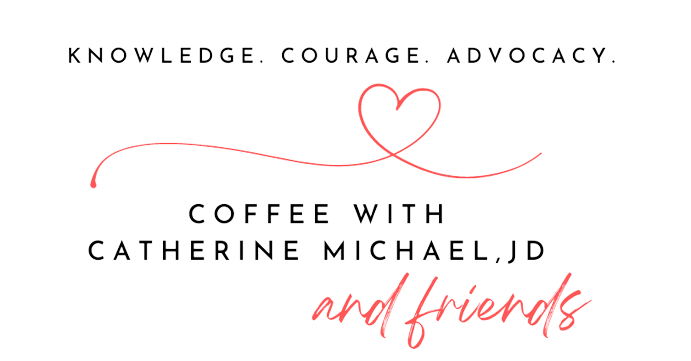
Private School Service Plans and Homeschooling
Parentally placed students in private schools.
Part B of the Individuals with Disabilities Education Act (IDEA Part B) at Section 612(a)(10)(A) and its implementing regulations at 34 C.F.R. §§ 300.130 through 300.144 contain specific requirements regarding State and local responsibilities for equitable services for parentally-placed private school children with disabilities.
Children with disabilities placed by their parents in private schools do not have the right to all of the protections under IDEA. However, they do have rights to ensure identification under Child Find and for adequate and full evaluations.
The requirements for child find for parentally-placed private school children with disabilities are found in 20 U.S.C. § 1412(a)(10)(A)(ii) and 34 C.F.R. § 300.131.
IDEA requires the following for students in private schools and homeschooled students:
Child Find activities (34 CFR §300.131)
Consultation requirements (34 CFR §300.134)
Written affirmation of timely and meaningful consultation (34 CFR §300.135)
Determination and provision of equitable services (34 CFR §§300.137-300.138)
Services plans for children with disabilities receiving equitable services (34 CFR §§300.132(b), 300.137(c) and 300.138(b))

Frequently Asked Questions About Students Who Are Parentally Placed in a Private Schools
What is a parental placed student for purposes of private school?
He or she is a student whose parent has opted to place them outside of the public school system and has chosen to utilize the private system instead. These are not students that the public school has placed in a private or therapeutic day school.
Is the school still responsible for identification?
Yes. Under 34 C.F.R. § 300.131, the school district where private schools are located is responsible for locating, identifying, and evaluating all children with disabilities who are enrolled by their parents in private, including religious, elementary schools, as defined in 34 C.F.R. § 300.13, and secondary schools, as defined in 34 C.F.R. § 300.36, located in the LEA. This responsibility is known as Child Find.
What is the time period for identification and offers of evaluation?
The child find process must be completed in a time period comparable to that for students attending public schools in the LEA. 34 C.F.R. § 300.131(e).
Does a public school have to make FAPE available to my child if they have been identified?
Yes. However, if you choose to keep your child enrolled in the private school you are rejecting the public school’s offer of FAPE.
What responsibilities does the public school have if I place my child privately?
In addition to identification and evaluation, the public school needs to provide consultation as well as some level of equitable services. The requirements for consultation are found in 20 U.S.C. § 1412(a)(10)(A)(iii) and 34 C.F.R. § 300.134.
What are equitable services?
Equitable services are special education and related services, including direct services, provided to parentally-placed private school children with disabilities in accordance with the provisions of IDEAThe requirements for equitable services are found in 20 U.S.C. § 1412(a)(10)(A) and 34 C.F.R. §§ 300.132, 300.137, and 300.138. The services will vary from school district to school district and state to state depending on how the individual state or district has decided to allocate funds.
What “consultation” does a public school have to provide if my child is placed by me in a private school?
Under 34 C.F.R. § 300.134, the public school must consult in a timely and meaningful way parents of parentally-placed private school as well as private school representatives during the design and development of special education and related services for parentally-placed private school children. This is often called a Private School Service Plan but the name can vary state to state.
What is the difference between a Private School Service Plan and an IEP?
A Service Plan is not a comprehensive document rather it is simply the services and/or consultation that your child’s public school will provide. While it may also provide goals, the public school is not responsible for the goals, outside of direct related services that it has agreed to provide. An Individualized Education Plan (IEP) is a comprehensive plan that includes present levels, goals, services, related services, ESY, and other necessary components that are the responsibility of the public school.
The Service Plan.
The Service Plan is a required component that must be provided if your child has been found eligible for special education services and you have consented to have one in place. This plan should be unique to your child and describe the specific special education and/or related services that the local school will be providing. The development of this plan is similar to the development of an IEP, however in addition to the public school personnel, the public school must ensure that a representative of the private school attends if your child is privately placed. If you are homeschooling your child, then the parent is the representative.
The service plan is not an offer of FAPE and will not include the services your child would have received at a public school. It will provide only the services that your child will be receiving in their private school or homeschool-based placement.
In addition to consultation, many schools will also offer related services, including speech therapy, occupational therapy, physical therapy, and counseling. Sometimes these are actually provided at the private school, and in other cases, a parent may be responsible for transporting their child to the local public school for these services.
Homeschool Based Placements.
Homeschooling your child is an option no matter where you live, but different states have different requirements. What doesn’t change state to state are the requirements under IDEA, which are detailed throughout this chapter. When you are choosing to homeschool your child, it is important to research what your state requires in terms of homeschooling.
Some states require:
Registration with the state DOE
Record-keeping and attendance
Standardized testing
You can learn your state’s individual requirements by visiting your state DOE website or contacting them directly. Another good resource is the Homeschooling Legal Defense Association (HSLDA), which provides a number of resources and information on the state-to-state guidance. It also provides articles, sites on which to find curriculum, and information that parents may need to know if they are considering this option. HSLDA’s website is found at www.hslda.org. It is very important if you wish to receive related services or get a service plan for your child that you are following the state’s requirements for homeschooling. In most states, homeschooled students are treated nearly identically to private school students in terms of the service plan, and it can be very helpful to get all the resources that you have access to in order to ensure your child’s success.

